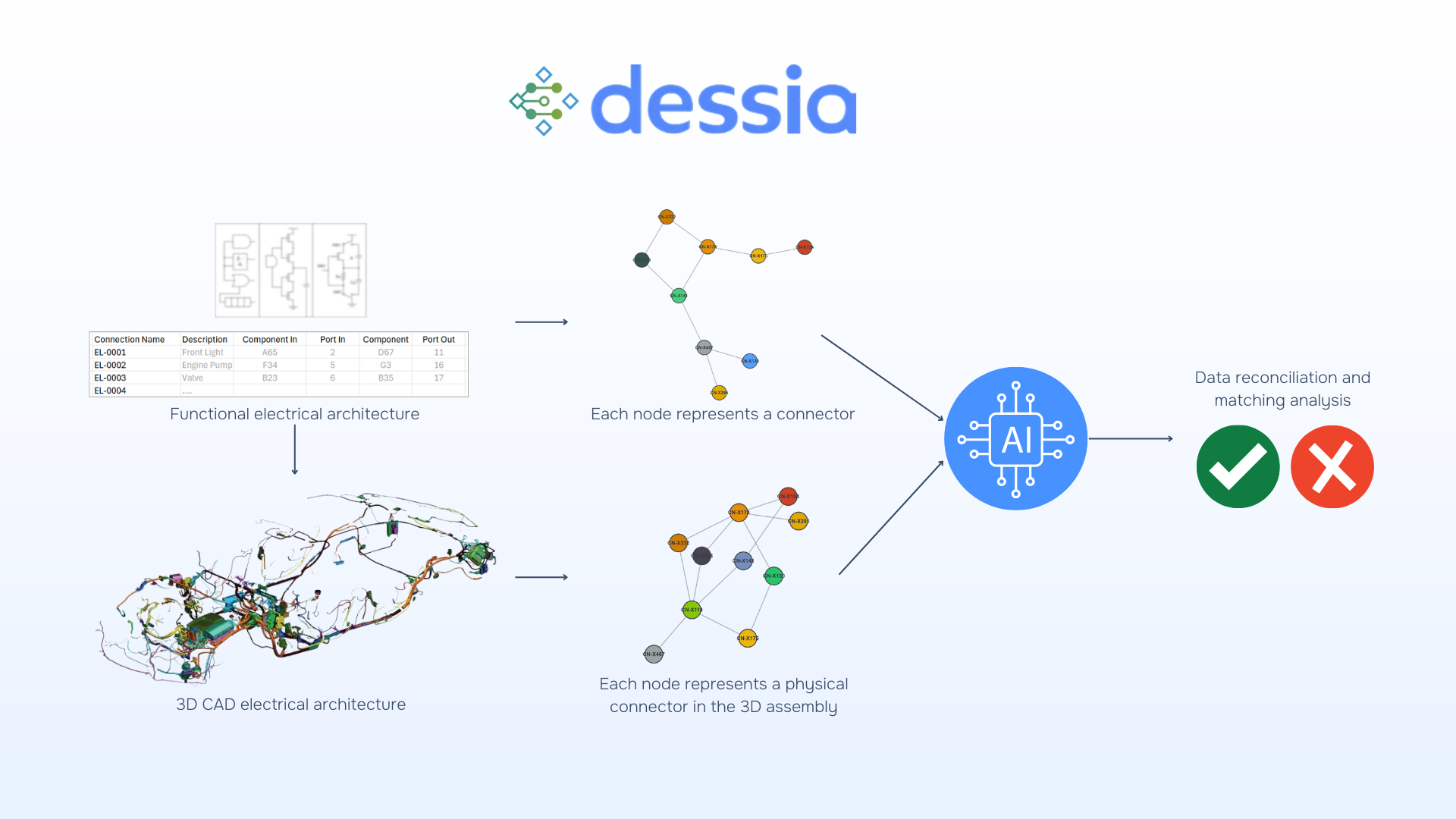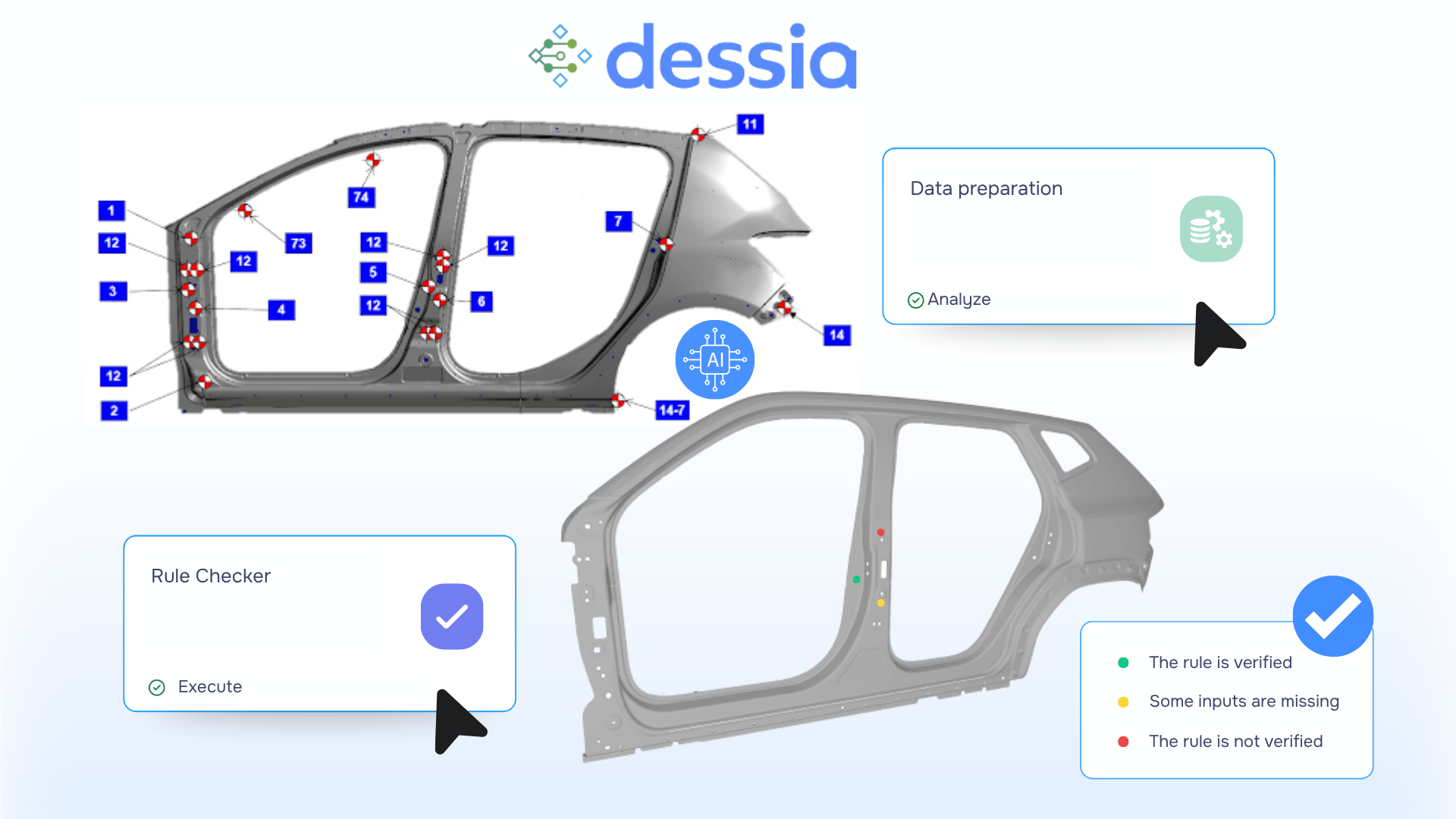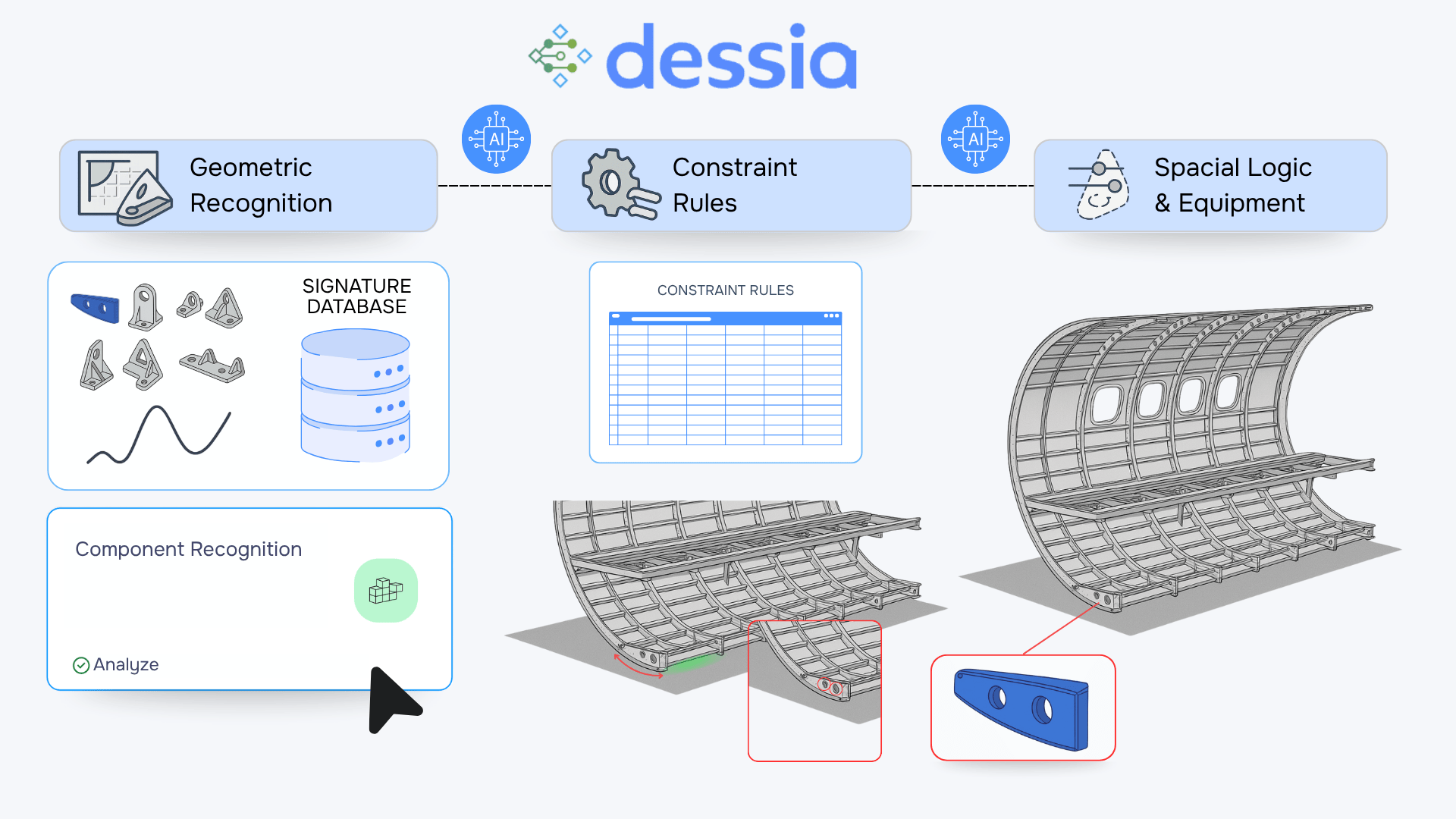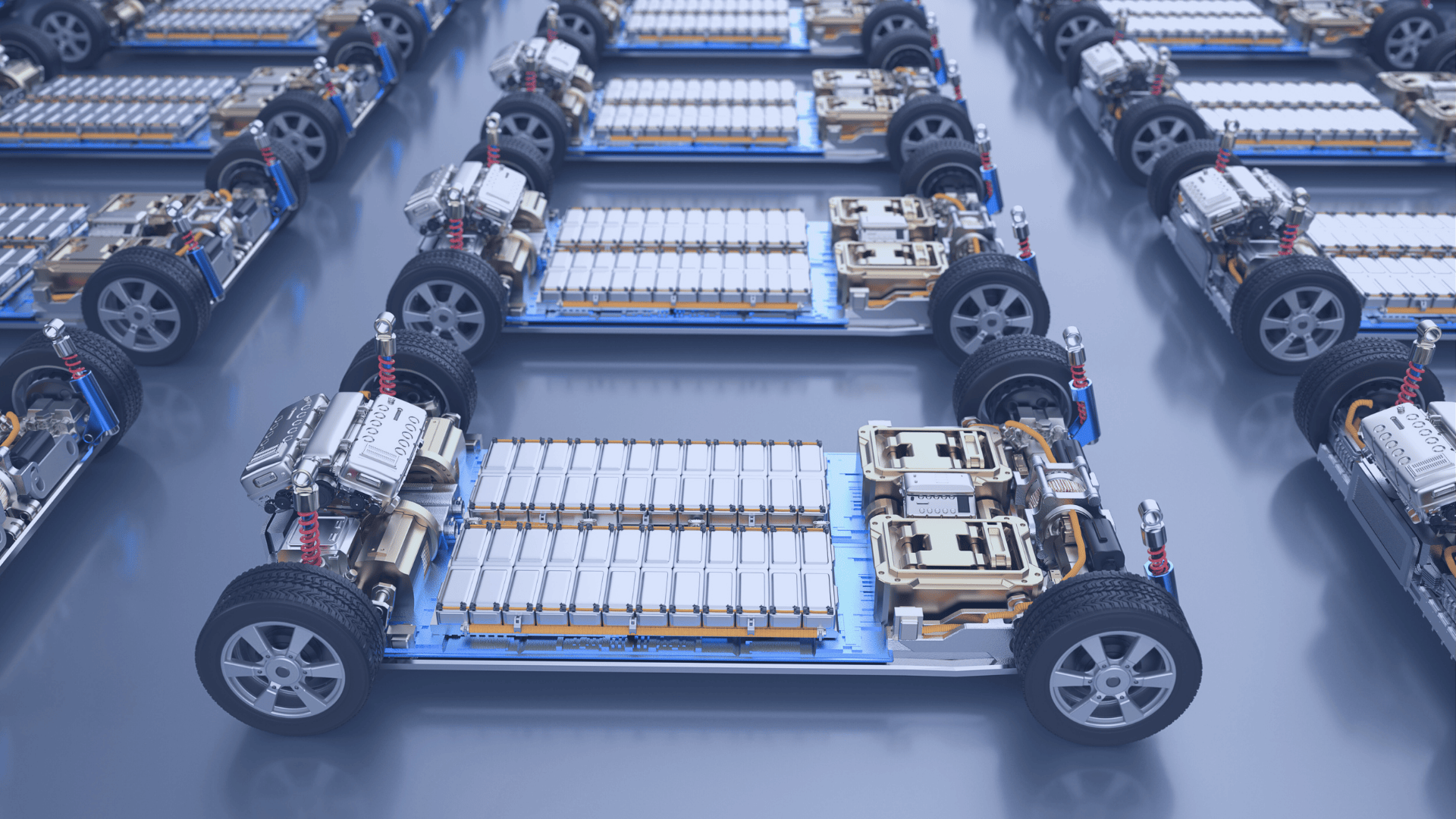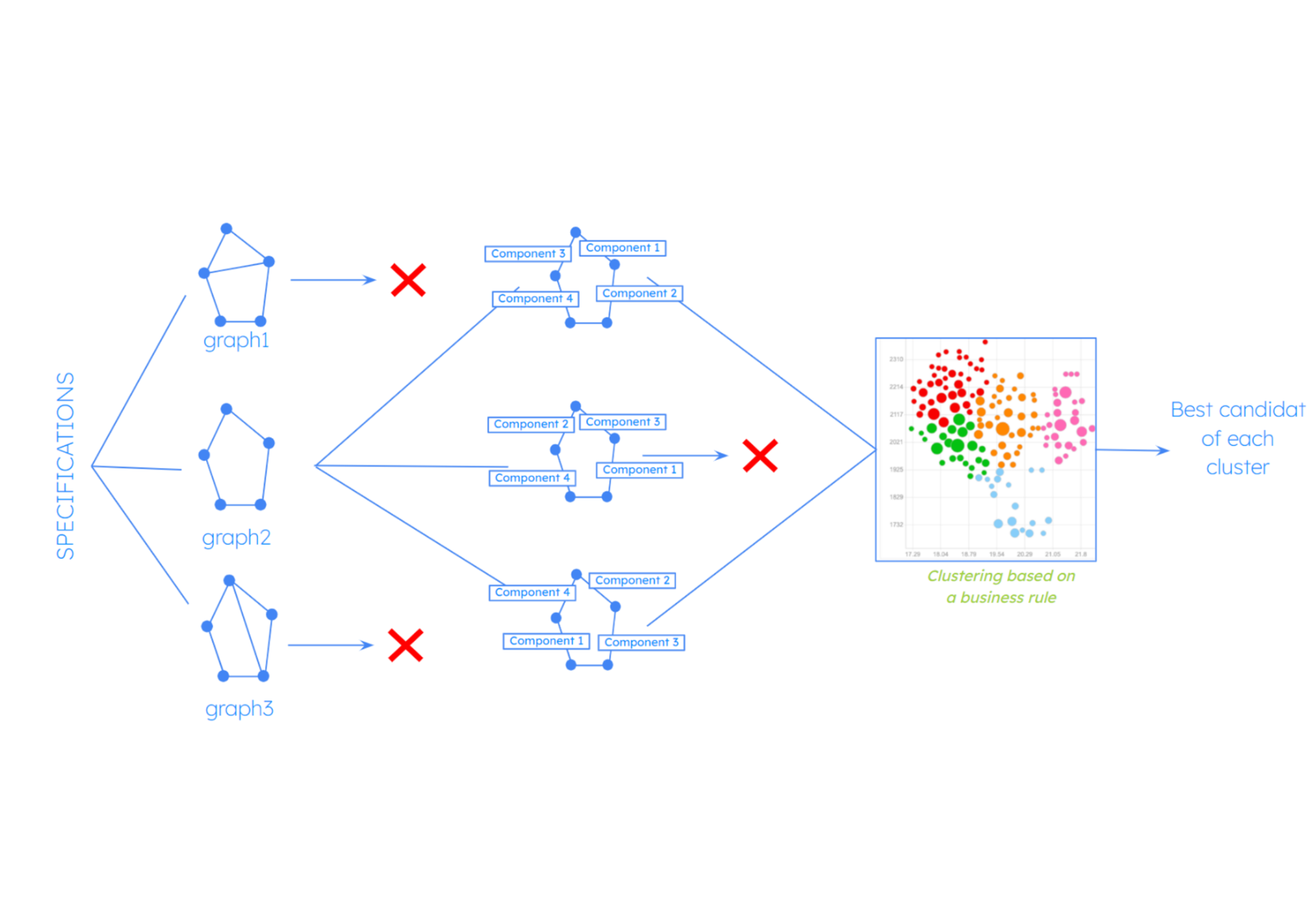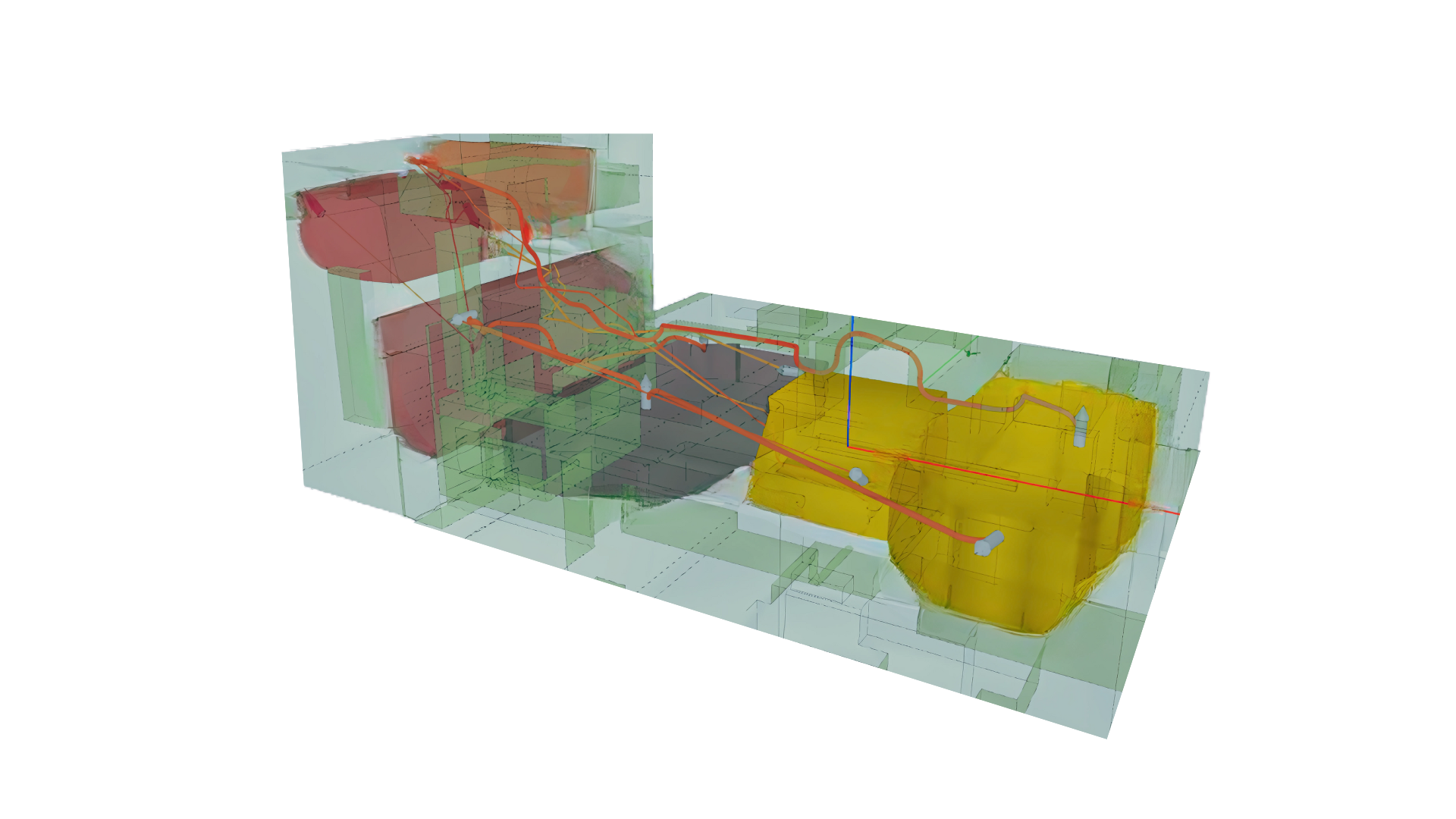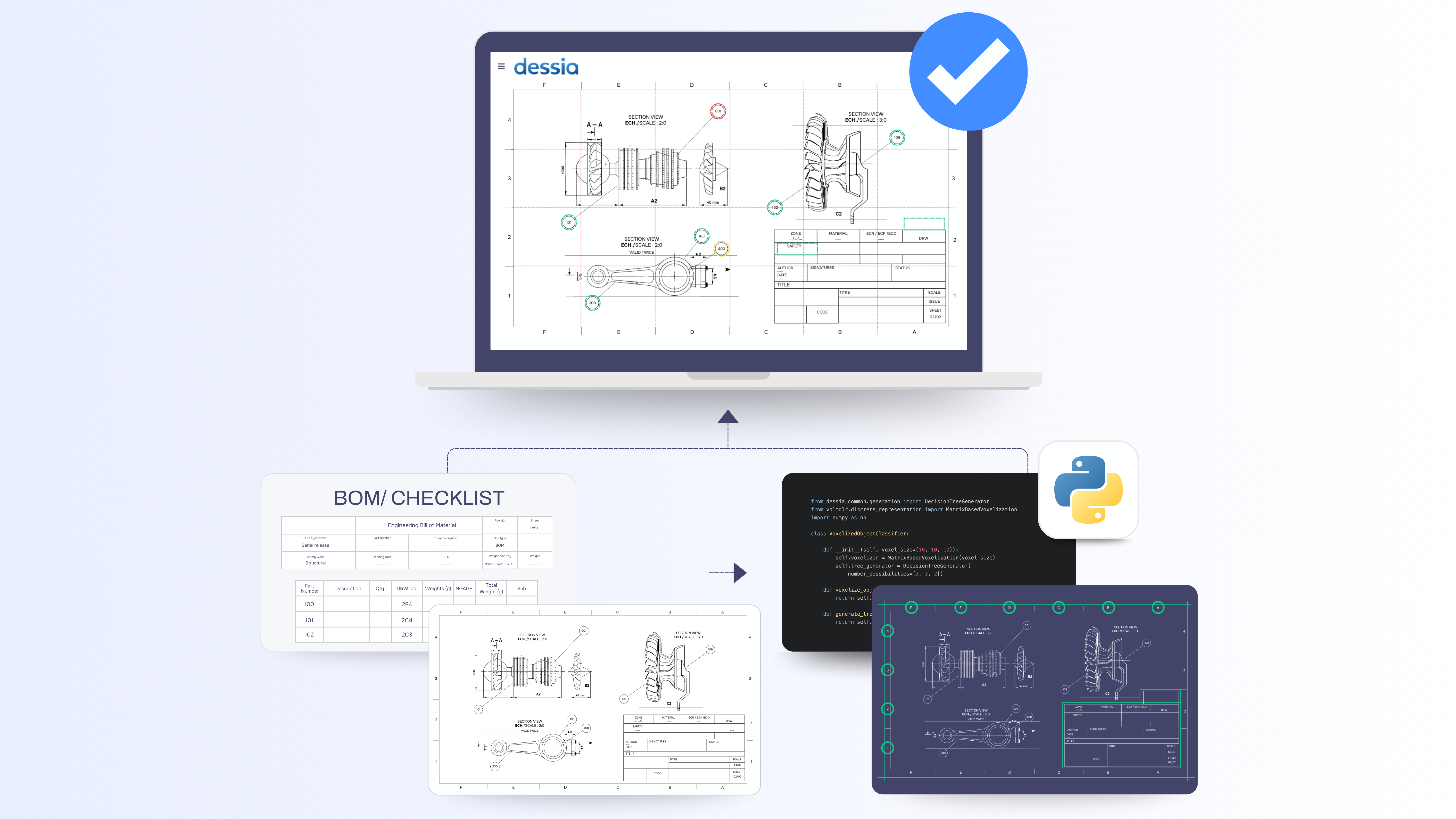AI Design Generation
Optimize designs and
automate complex solutions
.jpg)
Key Applications
Functional architecture generation
Automatically generate and validate system-level architectures early in the process for optimal design decisions.
Mechanical integration automation
Automate complex systems, such as wiring harnesses and hydraulic piping, reducing engineering time and improving accuracy.
Smart product architecture configurator
Generate optimized configurations for complex systems like battery packs and hydrogen storage tanks. Quickly evaluate and compare alternatives to select the best solution.
Manufacturing process cost optimization
Analyze and optimize manufacturing processes to reduce costs and improve operational efficiency.
Dessia's AI Design Generation unlocks the power to create optimized solutions and system architectures automatically. Generate multiple design alternatives, explore trade-offs, and reduce time-to-market through intelligent automation.

ContactUs
Contact us to see how you can streamline your design process.
Case Studies
FrequentlyAsked questions
Is Dessia available as a cloud-based solution or on-premise deployment?
Both, Dessia is available as both a cloud-based solution and an on-premise deployment. the platform offers flexibility in deployment based on organizational needs. The cloud-based version provides seamless scalability, automatic updates, and lower IT infrastructure management. For organizations with strict security, compliance, or operational constraints, an on-premise deployment is available. This option allows full control over data storage, security policies, and integration with internal IT systems while maintaining the platform’s core functionalities.
Does the platform/ Dessia integrate with existing PLM systems and support standard 3D CAD formats?
Yes, the platform is designed to connect through API with third-party software, including PLM solutions and supports industry-standard 3D CAD formats. This ensures seamless interoperability between engineering tools, allowing for structured data exchange and automated workflows. By maintaining compatibility with these formats, the platform facilitates digital continuity, reducing manual data handling, preventing errors, and ensuring that design iterations remain synchronized across all systems.
What type of AI does Dessia use?
Dessia leverages both symbolic and statistical AI, depending on the nature of the problem and the data available. Our approach allows us to use symbolic AI for explainability and deterministic modeling, integrating structured expert rules to ensure transparency, consistency, and compliance with engineering constraints. At the same time, we can incorporate statistical AI when dealing with complex patterns and data-driven insights. By combining both methods when needed, we enable a more flexible, efficient, and traceable exploration of design solutions.
Do I need a data scientist to configure and use the platform?
No, the platform is meant to be used by designers and engineers to use without AI or data science expertise. They can get started easily, integrating it into their processes with full flexibility. Teams can work independently or with the methods and tools department, without added complexity.


